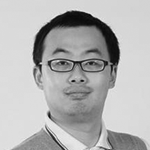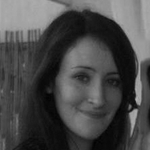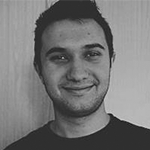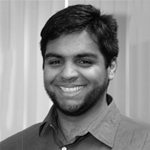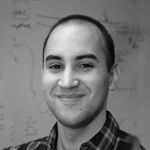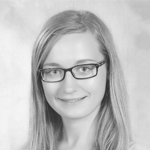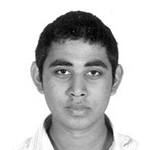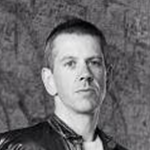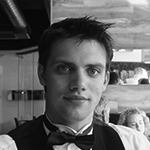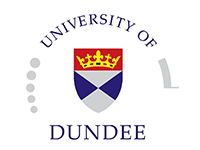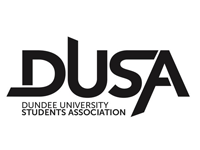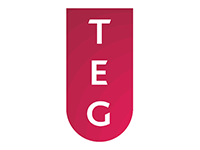Speakers
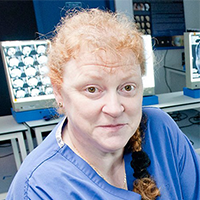
Professor Sue Black, Director of the Centre for Anatomy and Human Identification at the University of Dundee.
Professor Sue Black is Director of the Centre for Anatomy and Human Identification at the University of Dundee and Deputy Principal. She is a forensic anthropologist and an anatomist, founder and past President of the British Association for Human Identification, and advisor to the Home Office and Interpol on issues pertaining to forensic anthropology in disaster victim identification (DVI). She is a fellow of the Royal Society of Edinburgh, a Fellow of the Royal Anthropological Institute, a Fellow of the Royal College of Physicians (Edinburgh), a Fellow of the Society of Biology and a certified forensic anthropologist. She was awarded an OBE in 2001 for her services to forensic anthropology in Kosovo, the Lucy Mair medal for humanitarian services and a police commendation for DVI training in 2008, Hon Prof of Anatomy for the Royal Scottish Academy in 2014 and the Fletcher of Saltoun award for her contribution to Scottish culture also in 2014. She was awarded both the Brian Cox and the Stephen Fry awards for public engagement with research and in 2013 her Centre was awarded the Queen’s Anniversary Prize for Higher and Further Education. Her research was shortlisted for the Times Higher Education research project of the year.
How would you like to make a difference?
I would like people to think about who they really are.
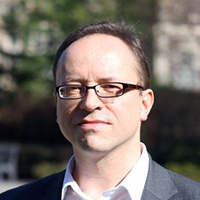
Professor Matthias Klaes, Dean of the School of Business at the University of Dundee.
Matthias Klaes is Professor of History and Philosophy of Economics. He studied electrical engineering, economics and management at the Universities of Darmstadt, Paris and Edinburgh. Much of his research has looked at the historical, methodological and philosophical aspects of economics and related business disciplines. Prior to joining Dundee in 2013, he held the Chair in Commerce at Keele University (since 2005). He has also worked at the Institute for Philosophy and Economics at Erasmus University Rotterdam, and as a lecturer and then reader at the Universities of Keele and Stirling. He has recently spent some time at Duke University as a Leverhulme International Academic Fellow and is academic lead investigator in a major European ‘Horizon’ project focus on crowdfunding renewable energy projects. He is active in a number of learned societies, served as managing editor of the Journal of Economic Methodology for five years, and his leading textbook on Behavioral Economics (with Nick Wilkinson) is currently going into its third edition.
How would you like to make a difference?
In our lives, we take much of our daily interaction for granted. This is as much true of our business transactions as it is true of other areas. My aim is to make us pause for a bit in order to allow us to approach what seems familiar with fresh eyes, and to reflect on the insights that can be gained this way on why the world of commerce demands of us our morality as human beings in the first instance, and prior to any consideration of economic rationality or hard-nosed business sense.

Professor Tim Newman, Professor of Biophysics and Dean of Engineering, Physics and Mathematics at the University of Dundee.
Tim Newman is Professor of Biophysics and Dean of Engineering, Physics and Mathematics at the University of Dundee, UK. Tim studied theoretical physics at the Universities of Oxford and Manchester, and then pursued research in complex systems as a postdoctoral scholar in Europe and the US. Since 2000 he has applied theoretical physics ideas to the life sciences and, prior to moving to Dundee in 2011, he held academic positions at the University of Virginia and Arizona State University. His research has covered many different biological scales, from ecology to embryo development to cell and molecular biology. His current research is heavily focused on cancer progression. From 2011-2014 he served as the Editor-in-Chief of the journal Physical Biology. He has served on numerous panels and boards in the US and the UK and continually strives to nurture interdisciplinary research and education at the interface between the physical sciences and the life sciences.
How would you like to make a difference?
Great ideas, an open mind, working with young people, and no sacred cows.
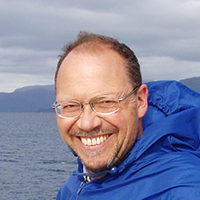
Professor Emanuele Trucco, NRP Chair of Computational Vision and VAMPIRE project director.
Emanuele Trucco, MSc, PhD, FRSA, is the NRP Chair of Computational Vision in the School of Computing, University of Dundee, and an Honorary Clinical Researcher at Ninewells Hospital and Medical School. His 30-year research has covered applications of computer vision to manufacturing, subsea robotics, immersive videoconferencing, and medical image analysis, funded by UK research councils, EU programmes, charities (e.g. the Royal Society, the Leverhulme Trust) and industry (incl. continuous funding from OPTOS plc since 2002). Current medical image analysis research includes vision for robotic hydrocolonoscopy (EU ERC "CODIR"), the analysis of whole-body MR angiographic data (with Toshiba Edinburgh), and the VAMPIRE initiative (Vessel Assessment and Measurement Platform for images of the REtina), an international collaboration of 10 image processing and clinical centres which he co-leads with Dr Tom MacGillivray of the Clinical Research Imaging Centre, University of Edinburgh. VAMPIRE has been growing a software suite for efficient, semi-automatic analysis of retinal images (vasculature quantification, lesions), in use for retinal biomarker studies on, among others, cardiovascular risk, stroke, cognitive performance, neurodegenerative diseases, dementia, and genetics. VAMPIRE was the first automatic system ever applied to UK Biobank retinal images. Emanuele has published more than 160 refereed papers and co-authored two textbooks, one of which ("Introductory techniques for 3-D computer vision", with Prof Alessandro Verri of the University of Genova, Italy) has become an international standard (2,516 citations, Google Scholar March 2014).
How would you like to make a difference?
I firmly believe that research has at least two key dimensions. One is the technical challenge of advancing knowledge; discovering new facts about the world, introducing new technologies, and how all this can be used to benefit society. The other is the human dimension of research: the fact that research is carried out by people, who bring great richness to a group as individuals, with their histories, their experiences and their personalities. A group of people is so much more than their technical skills, however excellent. I am fascinated by this dimension of research, and strive to make my own research group not only a success in terms of publications, grants and awards, but also a community in which individuals learn to share, laugh and flourish as scientists and as persons. I hope to be able to put across this message as inspiringly as possible!
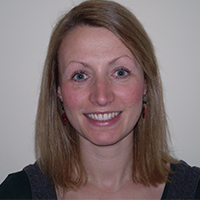
Dr Josie Booth, Lecturer in the School of Psychology at the University of Dundee.
Josie Booth is a Chartered Psychologist and Lecturer in the School of Psychology at the University of Dundee. Josie was awarded her PhD in Psychology from the University of Strathclyde and following this, was employed as a postdoctoral researcher within the Physical Activity for Health group. Josie’s research focusses on child development, with an emphasis on cognition and educational attainment and the role of physical activity and health. Physical activity interventions are a focus of Josie’s work and the role that physical activity can have in addressing inequalities in society.
How would you like to make a difference ?
I’d like to make a difference by encouraging people to think more widely about activity. Evidence suggests that inequalities in health and education can be reduced through participation in sport and physical activity, as part of a healthy lifestyle. By making changes to the amount and type of physical activity, some of the inequalities associated with lower socio-economic status can be reduced substantially. The growing inequalities in the UK point to an urgent need to address this issue and to support change. Providing people with the findings from academic research in this area is one way to encourage greater participation for all. It may also provide the impetus for development of interventions, technology and changes in the environment which are required. The need for new and creative ways to encourage activity will be highlighted.!
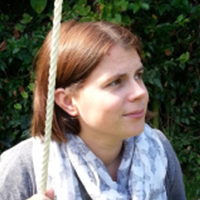
Dr Lorna Gibson, Scotland Coordinator for Code Club.
Lorna Gibson is Scotland Coordinator for Code Club (a non-profit which supports schools and other venues to run coding clubs). With a background in human-computer interaction, accessibility and child-centred design, she knows first-hand the impact technology and technological innovation can have. She feels strongly about young people having the opportunities to find out and try out as many diverse activities as possible. Code Club is one of these opportunities and consequently she has been running her own Code Club since January 2014. She is also an Honorary Researcher at the School of Computing at the University of Dundee supporting their outreach work amongst other things. Previously she has spent a number of years as a researcher publishing on a variety of topics but always focused on where technology can transform an experience, a situation or peoples’ lives.
How would you like to make a difference ?
I think we all make a difference; some of us in small personal ways and others in larger societal ways. I would like us to take more time to reflect on the differences we each make – apart from being food for the soul, it encourages us to continue and do more (which can only be a good thing).
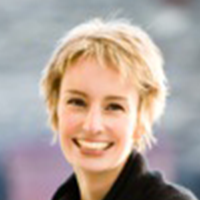
Kirsty Miller, PhD student at the University of Dundee.
Kirsty Miller is a post-graduate student at the University of Dundee specialising in social and health psychology. Having previously worked in a variety of jobs, including running her own business, she returned to education where she gained a Masters in Psychological Research Skills. Kirsty has a strong interest in teaching and educating, and alongside working with university students, she also enjoys sharing her knowledge of science with school children in her work as a STEM Ambassador. Kirsty’s current research investigates the link between social factors, health and behaviour in adolescents, and she hopes to continue to develop her work with young people to improve their well-being and quality of life.
How would you like to make a difference ?
I would like to make a difference by encouraging people to think about those around them. In an increasingly stressful and individualistic society, I want to emphasise how important our relationships with others are. Humans are social animals, and having meaningful relationships can literally save lives. We all have the ability to change someone’s world…
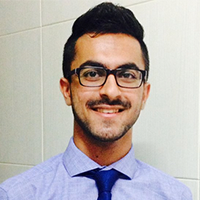
Aliraza Somji, Student at the University of Dundee.
Born and raised in the city of Dar Es Salaam, Tanzania, Aliraza Somji completed his high school education studying the International Baccalaureate Program at The International School of Tanganyika. Growing up in a country where oral health problems are ubiquitous and solutions scarce, Aliraza felt a growing desire to make a difference to this health sector. His developing awareness of the number of people suffering from harmful oral diseases and his keen interest in biology led him to pursue dentistry at the University of Dundee where he is currently a first year international student. Aliraza is very passionate about football and fitness. He has climbed the legendary Mount Kilimanjaro and participated in an international football tournament with his high school team. Aliraza also strives to build his interpersonal and public speaking skills. He participated in The Hague International Model United Nations (THIMUN) conference in 2013 where he engaged with delegates from different parts of the world. Aliraza also served as a public relations officer for his school during his senior year. Adding to his leadership goals, Aliraza was also president of a local community called Roots and Shoots, inspired by Dr. Jane Goodall. He has also initiated the Facebook page Acts of Kindness Tanzania, a project where him and a few friends aim to better the lives of the needy and homeless in his hometown Dar es Salaam.
How would you like to make a difference ?
By ensuring we don’t take for granted the gift of life but rather see the deeper meaning to our existence and purpose.

Sean Talamas, PhD Student at the University of St. Andrews.
Sean Talamas is a PhD Candidate at the University of St. Andrews working under Professor Dave Perrett in the Perception Lab. Sean earned a Masters in Psychology and another Masters in Teaching both at Austin Peay State University. He completed all of his Education while serving as full-time Active duty in the US Air Force in a combat career field named TACP (Tactical Air Control Party). He got the opportunity to attend some of the most challenging and rewarding training courses the military has to offer including: Airborne, Air Assault, Rappel Master, Fast Rope Master, and Survive, Evade, Resist, and Escape (S.E.R.E) courses to name a few. It was these opportunities that first made him interested in education and motivated him to pursue a PhD. He joined when he was 17 and served 4 years active duty, quickly followed by his entrance to the PhD Program at St. Andrews. His personal journey has made him aware that obstacles are often simply complex challenges to find solutions. He genuinely doubts that his academic achievement has anything to do with his intelligence level, but rather the combination of the motivation, expectations and grit his mentors instilled in him. His research investigates individual differences like the personality and intelligence of educators and its influence on perceived intelligence of students. His interests in this area stems from a belief that we must uncover potential limitations to proper mentorship so that educators can impartially educate regardless of first impressions. His blog posts are an attempt to advocate a healthier lifestyle so that students can improve their perceived intelligence and share useful information with educators, mentors, and coaches alike to help combat the impact of bias teaching practices – for the best antidote to deter unconscious bias is to make it conscious.
How would you like to make a difference ?
I want to make a difference by advocating a healthier lifestyle so that people can improve their perceived intelligence, regardless of their attractiveness and also share useful information with educators, mentors, and coaches alike to help combat the impact of bias teaching practices – for the best antidote to deter unconscious bias is to make it conscious.
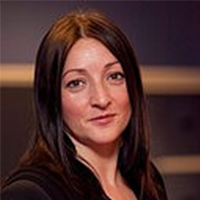
Caroline Parkinson, Consultant in the creative industries and skills, and a professional photographer.
Caroline is a freelance consultant in the creative industries and skills, and a professional photographer. Caroline was Director of Film, TV, Music, Creative Industries & Skills at Creative Scotland for four years between August 2010 and August 2014. Prior to this she was Director, Scotland & Northern Ireland for Creative & Cultural Skills from 2005 to 2010. Immediately prior to joining CCSkills, she ran her own photography practice, Focus 7 (Scotland) Ltd, and provided consultancy to Scottish companies using design to enable business transformation. She was Director of PACT (Producers Alliance for Cinema and TV) in Scotland & NI between 1994 and 1997. Prior to that she assisted Catch Theatre in Education company whilst establishing her bespoke ladies fashion label ‘Strange But True’. Caroline is a singer and plays piano and started her own band at 17 and has fronted a few bands over the 30 years following. Prior to this she studied ballet and ballroom as well as gymnastics, and at 14 became a Scottish Squad Rhythmic Gymnast and later, one of the coaching team and Choreographer for her local club and Squad gymnasts. She is a published and exhibited photographer with her most recent exhibition of Arizona, the Grand Canyon to the Mexican border, in 2009/10 in Phoenix, Arizona and the Holyrood Parliament, Edinburgh.
How would you like to make a difference ?
I would like the audience to grasp, maybe more than they have before, the importance of design, the contribution that designers make across our society and in every aspect of the economy, and to think about design methodology as their first approach to tackling issues or realising ideas. My hope would be that this renewed enthusiasm about design would encourage their participation in the activities to come as part of the recently awarded UNESCO City of Design status for Dundee, the Year of Innovation, Architecture & Design in 2016 and of course the V&A opening in Dundee in 2018.
